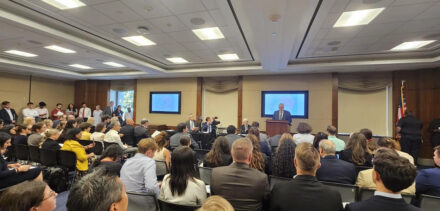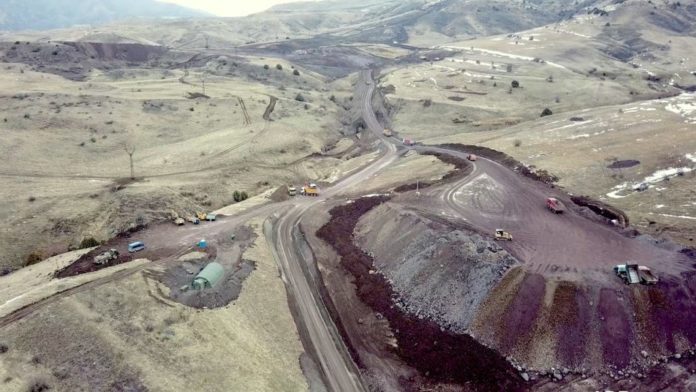YEREVAN (RFE/RL) — A major gold mining project launched in Armenia by a Western company poses only “manageable” environmental risks, a senior law-enforcement official who has investigated it insisted on Monday.
The official, Yura Ivanyan, also stood by the investigators’ conclusion that the Armenian Ministry of Environment Protection did not break any laws or regulations when it formally allowed the company, Lydian International, in 2016 to develop the Amulsar gold deposit.
“The assessment of the environmental and social impact on the mine’s exploitation received a positive conclusion from the Ministry of Environment Protection without any violation of the law,” Ivanyan told a news conference.
Prime Minister Nikol Pashinyan told Armenia’s Investigative Committee to look into the legality of Lydian’s mining license shortly after he came to power in May last year. The law-enforcement agency was specifically supposed to find out whether ministry officials misled people living near Amulsar about “dangerous risks” posed by the project.
The Investigative Committee chief, Hayk Grigoryan, said on August 15 that it has no grounds to indict anyone as a result of its inquiry led by Ivanyan. Grigoryan cited the findings of an environmental audit of the Amulsar project commissioned by the Armenian government and conducted by a Lebanese consulting firm, ELARD.
In its final report submitted to the investigators, ELARD concluded that toxic waste from the would-be mine is extremely unlikely to contaminate mineral water sources in the nearby resort town of Jermuk or rivers and canals flowing into Lake Sevan.








